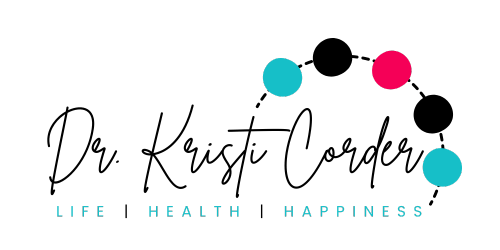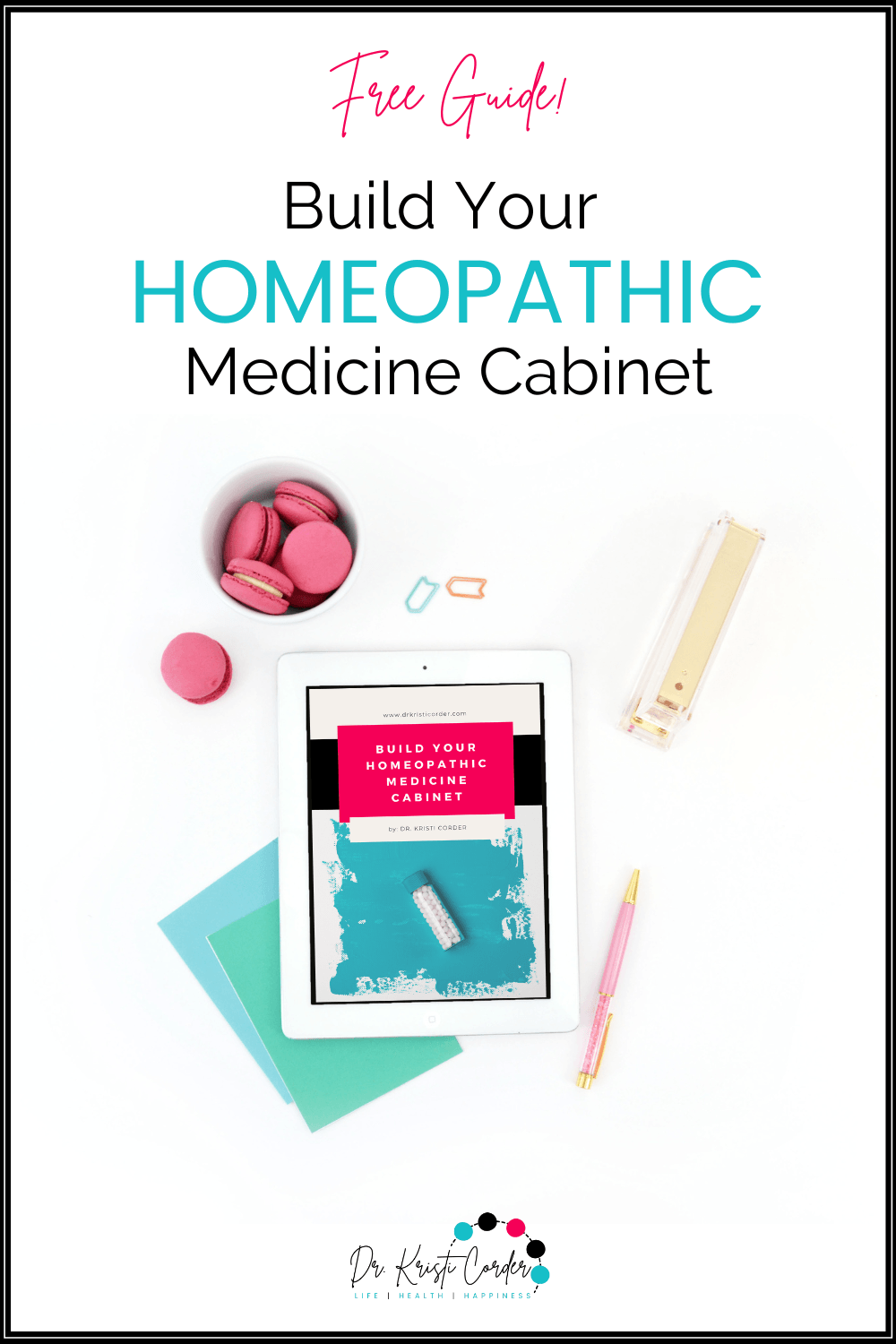Top Essentials for Every Holistic First Aid Kit
This post may contain affiliate links.
Click here to read my affiliate policy.

It's always a good idea to have a basic first aid kit in your house, in your car, at work, in your gym bag, etc. But if you're anything like me, you don't just want to walk into the local drug store and buy one off the shelf that includes products for which there are more natural alternatives. You want a more holistic first aid kit. And to get it, you're going to have to build one yourself.
As a chiropractor, my first aid kit is going to look much different than most. I have basic medical equipment such as a stethoscope, otoscope, ophthalmoscope, blood pressure cuff, and more in my kit. And while those items are very useful for some emergency and first aid situations, they are not essentials that most people would need to keep in their own kits.
So besides having scissors, tweezers, safety pins, and the like on hand, what natural alternatives are essential for a holistic first aid kit?
1. Bandages and Gauze
No first aid kit would be complete without bandages and gauze.
The holistic first aid kit is no different. After all, we aren't immune to cuts and scrapes. And you never know when you'll have a puncture wound or deeper cut that would require gauze be placed over the area.
Patch Bamboo Adhesive Bandages
Do you have a child that needs the comfort of an adhesive bandage on his/her ouchies? I do.
I recently found these natural bamboo adhesive bandages and think they are worth trying. The reviews are amazing and they are certified organic, vegan-friendly, and cruelty-free.
Each bandage is made with 100% organic bamboo fibre and a mineral based Pressure Sensitive Adhesive that is hypoallergenic. They don't contain plastic, silicon, parabens, or latex like many adhesive bandages that are on the market. Everything from the packaging to the bandage itself can be composted.
Organic Cotton Gauze
For wounds that require a little more attention, you want to make sure you have gauze on hand.
Gauze squares are useful when needing to compress an area that is bleeding profusely. And gauze wraps are great to wrap around any type of dressing you apply over an area.
Most gauze squares and wraps are made from cotton. In the U.S., cotton is heavily sprayed with pesticides and herbicides and it's also typically bleached. In your kit, you want to aim to include a variety of organic cotton gauzes.
A few years ago the USDA released this article about a new cotton gauze that's made from raw, unbleached cotton fiber. If they also use organic cotton, you should stock up!
As of this writing, I'm only seeing this gauze in a bleached version on Amazon, so I'm not sure if they've come out with the unbleached version yet.
2. Distilled Water
You don't see water included in a first aid kit you buy at the store. But every good holistic first aid kit should include distilled water.
Water can be used for a variety of different reasons. If you have a child that falls down in the dirt and scrapes their knee and it's bleeding and dirty, you can use the water to wash it off. If something harmful gets into your eye, you can use water as an eye rinse. You can use it with bentonite clay to make a healing paste.
Be sure that the water you keep on hand is distilled and not tap water as tap water can contain pathogens that could lead to infection.
3. Homeopathic Medicines
Personally, I could just carry around my entire homeopathy kit with my chiropractic medical kit and be covered with all of the first aid items my family needs. But this just isn't feasible for everyday life nor for every person.
So these are the homeopathic medicines I'd recommend everyone include as part of their holistic first aid kit (you can find them all in my Fullscript Dispensary in the Homeopathy Mini-Kit section):
Aconite - for shock
Arnica - for injuries
Arsenicum - for poisoning
Apis - for allergic reactions
Belladonna - for pain
Calendula (in cream form) - for scrapes, cuts, and minor burns
Cantharis - for burns
Hypericum - for pain
Ledum - for puncture wounds and bug bites
Nux Vomica - for tummy troubles
Phosphorus - for bleeding
4. Witch Hazel
Witch Hazel is an astringent made from the shrub Hamamelis virginiana. It can be used topically to aid in the healing of most any skin condition. From pain to swelling to itching, it's a must-have for the holistic first aid kit.
Use it just as you would rubbing alcohol to disinfect cuts and scrapes.
Dab it on a sunburn to soothe the area.
Put it on insect bites to reduce swelling and prevent itching.
And if you're up for the extra work, you can make witch hazel yourself.
5. Coconut Oil
Coconut oil deserves it's rightful place in any holistic first aid kit. It has natural antibacterial, antiviral, and antifungal properties that help with all types of skin conditions.
Apply it topically to wounds to speed healing and protect from infection.
Use it on sunburns or rashes to soothe and repair the skin.
6. Bentonite Clay
Bentonite clay is great for detoxing and healing and is the reason it is known as "healing clay". It can be used for both internal and external afflictions.
Add a little clay to water to make a paste and apply it to any skin wounds. It will soothe and rid the skin of harmful bacteria and prevent infection.
It can be used on things like cuts, insect bites, burns, and more. It's also a great treatment for things like poison ivy and other skin rashes.
For internal use, mix a small amount with water and then drink it. This is especially helpful for nausea and vomiting and can bind with toxins in the gut and remove them.
Note: I do not recommend long term internal use of this product as it could affect normal digestion processes.
7. Kaolin Clay
This clay is a soft white clay used as a hemostatic agent which induces clotting and helps stop bleeding.
The U.S. Naval Medical Research Institute developed QuickClot Combat Gauze infused with kaolin which is still used today.
Mixed with water, it can be used to heal bruises and cuts, reduce muscle soreness and pain, and alleviate the maladies of insect bites.
Mix it with honey and apply to rashes to soothe the skin.
8. Activated Charcoal
Consider adding activated charcoal to your first aid kit. It's a great natural remedy that can be used as a treatment for both internal and external conditions.
One of the most common uses of activated charcoal is for poisonings. Whether someone suffers from food poisoning, or ingestion of something such as bleach or pesticides, or they overdose on a prescription or non-prescription drug, activated charcoal can bind to the toxins, prevent absorption by the body, and remove them more quickly.
Externally activated charcoal can be used on insect bites, snake bites, and rashes from poison ivy and poison oak. Just mix the charcoal with coconut oil, apply as a paste, and cover with a bandage.
Note: I do not recommend long term internal use of this product as it could affect normal digestion processes.
9. QuickClot Cloth
My friend Kathryn at Beyond This Desert keeps a Quick Clot Cloth in her Mom-Around-Town-Kit for wounds that bleed profusely. This cloth uses infused kaolin clay to help with clotting and helps bleeding stop fast.
However, if you have the bandages and kaolin clay that I mention above, you can make your own QuickClot Cloth by putting kaolin clay directly on the area and covering with a bandage.
10. Colloidal Silver
While I prefer to have other remedies available in my holistic first aid kit, this is one that many would consider essential to have on hand. It can be used both topically and internally for many ailments.
Colloidal Silver is a biocide that is known to kill a broad range of bacteria. We have successfully used it internally for extremely painful sore throats, sinus infections, pink eye, and ear infections. It can also be applied topically on open wounds and burns to prevent infection.
So if you don't have anything else on hand and you're worried about infection of any kind, then colloidal silver can be an effective treatment.
Note: I do not recommend long term internal use of this product as it could affect the proper balance of bacteria in the body.
11. Raw Honey
Honey bees are amazing little creatures and their honey should be a part of everyone's first aid kit. But don't just go to the store and buy any honey, you need to be sure you're grabbing raw honey.
Raw honey is antimicrobial and plays a key role in wound healing. Not only is it antibacterial, but it keeps a wound moist, provides a barrier to prevent infection, and provides enzymes that aid in the healing process. Just apply it to a wound or bite and let it get to work.
It can also be great to have on hand should your little one say, "my throat hurts." It's known in our household to stop a sore throat in its tracks.
If you want to take it up a notch, keep Manuka honey on hand.
12. Essential Oils
Many people love using essential oils for first aid situations, and like homeopathy, I could probably carry around a big case full of essential oils to use for all sorts of first aid situations. Here are the main ones that I like to keep on hand:
Clove oil - for tooth/gum ailments
Lavender - for cuts, scrapes, burns, and bug bites
Tea Tree oil - for skin afflictions like poison ivy and fever blisters
Peppermint - for tummy troubles and headaches
If you want a holistic first aid kit, you're going to have to create one yourself. I hope I've given you some thoughts about what you could use to start your kit. If you choose to go minimal, I'd at least recommend designing a kit with the first 3 items on this list and then only items that you feel would be specific to your family dynamic.

Hi! I'm Dr. Kristi!
I’m a wife, mom, and alternative health care practitioner. I like to live a little differently and go against the grain.
I consult with people of all ages who are looking to ditch the drugs for alternative methods of healing. But I’m most passionate about teaching parents how to care for their kids illnesses at home using homeopathy and other alternative health care practices such as nutrition, natural remedies, minimalist ideas, and more. I’m completely obsessed with ice cream, waterfalls, and all things travel related.
Disclaimer: The entire contents of this website are based upon my own opinions unless otherwise noted. I am not a medical doctor and the information on this website is not intended to be a substitute for professional medical advice, diagnosis, or treatment. It is intended as a sharing of knowledge and information from my research and experience. I encourage you to make your own health care decisions based upon your research and in partnership with a qualified health care professional. If you are pregnant, nursing, taking medication, or have a medical condition, consult your health care professional before using products based on this content.
The information on this website has not been evaluated by the FDA and is not intended to diagnose, treat, cure or prevent any disease.
By using this website, you agree to abide by this disclaimer as well as the Terms of Service, Disclosure Policy, and Privacy Policy.
Copyright 2023 | Dr. Kristi Corder | All Rights Reserved






